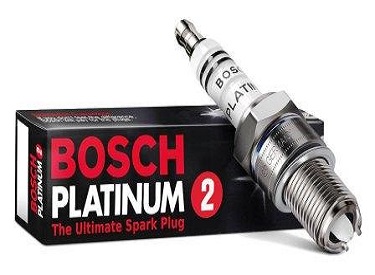
If you own an automobile long enough, you’ll have to consider selecting the right replacement spark plugs. These periodic maintenance items, last a lot longer than they use to on automobiles from 20 years ago. With that said, manufacturer’s guidelines, require replacement of these vital components, every 10 years or 100,000 miles. This rule of thumb only works on automobiles from 1996 to present day.

Make sure you check a genuine factory auto repair manual for the exact guidelines for your specific vehicle. With the average car owner keeping their vehicles much longer than 10 years or 100,000 miles you might have to pick the right replacement spark plugs more than once. The question remains what brand to go with and why. Some retail auto repair shops may use specific brands. As an example, they use mighty brand spark plugs because they source these parts at discounted prices.
This increases their profit margin on the lucrative maintenance service of replacing spark plugs. Then you have these aftermarket companies claiming they can boost horsepower and fuel economy by simply installing their brand of spark plugs. In this in-depth article will discuss all of these possibilities and leave you with enough information to make your own decision about what kind of replacement spark plugs you want to install.
Original Equipment Versus Aftermarket Spark Plugs

As you’ll see throughout this article as a factory trained and certified master technician I’m a total believer in sticking with the original equipment spark plugs. The selections of these components were made by the engineers that designed the engine. For me to think that I can improve upon this by selecting an aftermarket spark plug seems a little ridiculous.
However, some companies provide independent lab results and charts of just how much horsepower and fuel economy you can gain from installing their products. The question remains do the claims hold any weight in the real world? Probably the best way to come up with an answer to this question is to talk about how a spark plug works.
What Spark Plugs Actually Do
The job of this component is to ignite and completely burn the compressed fuel charge in the combustion chamber. How far the spark plug reaches into that combustion chamber when fully seated becomes one of the factors important to its design. The gap between the ground strap and the electrode of the spark plug becomes another important feature. This is the distance that the high-voltage spark must jump across.
The heat range of the spark plug is another important factor to consider. You want to spark plug to run hot enough to burn off any excess of carbon between ignition cycles. However, if the spark plug runs too hot it can damage the metals that make up the electrode and the ground strap.
Another downside of having a spark plug that runs too hot becomes an engine ping caused by early detonation. This is more important today, thanks to engines made from mostly aluminum. Factory engine designers often create specialized spark plugs to operate correctly in specific engines. The aftermarket companies try to copy these specifications as closely as possible.
Different Kinds of Spark Plugs

The part that wears the most on any spark plug is the tip of the electrode. Therefore, the composition or the metal it’s made from goes a long way in determining how long the part will last. Up until 1996 we used a conventional copper plated nickel metal that required replacement every 30,000 miles. After 1996, car makers started to use platinum plugs that lasted 60,000 miles or longer. This became an excellent selling feature and improved reliability.
These car makers then started to produce double platinum spark plugs that could go one hundred thousand miles without any maintenance. As this wave continues, we now find electrodes made out of iridium. This expensive semiprecious metal has proved even harder and longer lasting than the platinum spark plugs. With that said, you’ll have to shell out a few more bucks for these iridium spark plugs when compared to the platinum ones. For this reason I don’t find it necessary to go against the factory recommendation and look for aftermarket spark plugs just because they use iridium.
The Right Replacement Spark Plug Opinion
As a professional mechanic I’ve replaced my share of engine spark plugs. I always recommend to the consumer that they go with a direct replacement using the same part number from the same manufacturer. In the case of domestic automobiles we’re talking about using Motorcraft spark plugs on a Ford product. On General Motors automobiles we’re talking about using AC Delco spark plugs. And finally on Chrysler automobiles let’s use Mopar branded replacement parts.
On German automobiles like Mercedes-Benz, BMW or Volkswagen, these companies signed a deal with the Bosch company to produce spark plugs. These components meet the specifications laid out by the engine designers. When it comes to Japanese automobiles, you’ll often find NGK or Denso branded plugs in a Nissan automobile. In the case of these foreign cars, specialized auto part companies provide direct replacement and high quality components. From my own personal experience anytime I deviated from this recommendation, I wound up going back to the original equipment at some point.
Of course, they say that the customer is always right. However, when I followed the instructions of a car owner by installing an aftermarket part, poor performance or fuel economy resulted. In other cases, some of these aftermarket spark plugs just began to misfire. In one particular nightmare situation, the tip of the electrode fell out of a popular brand spark plug and damaged the engine. Therefore, in my opinion, It’s hard to beat the reliability of factory installed parts.
